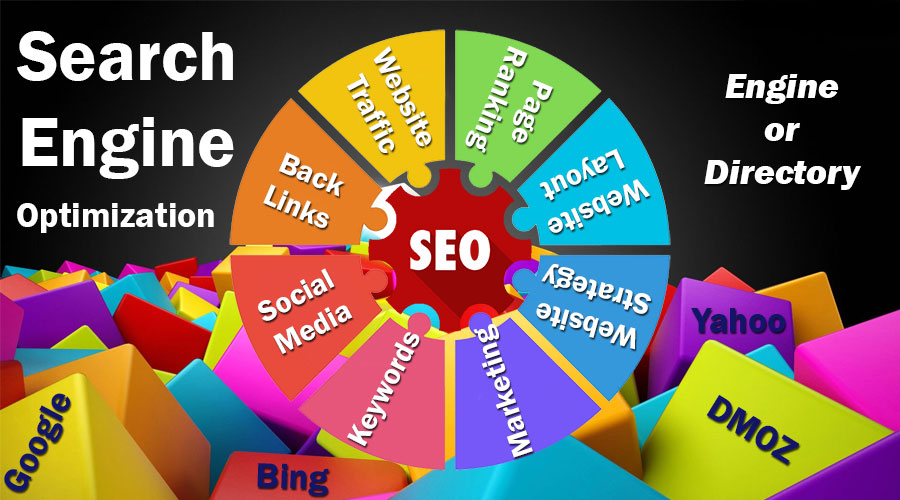In this day and time nothing is more important to a business than being found on the search engines. Search engines are an invaluable source for people finding your business on the Internet. With nearly everyone owning a smart phone and/or a tablet, they can use for instant access to finding what they want, it is imperative your site be found on the search engines.
What most people don’t understand is the difference in a “search engine” and a “search directory”. Search directories are manmade “lists” of websites in categories and subcategories that are not based on keywords.
Search engines are programs that are written to search their database for specific “keywords” the user enters into the screen. The database is built by the search program sending out an automated “spider” to capture as many websites as possible. The spider reads the information on each webpage and creates an index based on the words it finds on the webpage. Any links the spider finds on the page are “crawled’ in the same manner. Each search engine is unique in the way its program runs the proprietary algorithm to create the indices so the results that display on the screen when the user enters a keyword is meaningful. The search results is only as good as the algorithm used for that search engine.
The goal of Search Engine Optimization (SEO) is to maximize the number of visitors to your website by ensuring that your website appears at the highest possible position in the search engine results. When you create a website that communicates easily to the search engines the intention of the website it makes it a lot easier for the search engines to rank the website higher on the search results page.
Some website owner’s purchase paid search results where you buy “keywords” that guarantee your website will be at the top of the list. Some even use social media marketing (a whole different topic) to push their websites to the top of the search engine results. When building a website if the information architecture of the site and the content on each page is thought out carefully, it’s like the foundation of a house, it’s the building block of SEO.
The headings on the page, the content (not just information, but bold or italicized words) make the spiders from the search engines sit up and pay attention. The spiders see these and think, “Hey this has to be important”, it not just your typical sentence.
Does your website have pertinent content that makes other people, other websites, want to link to the information on your website (this is called back linking). Is your website easy for users to navigate and find the information they are looking for? How fast does your website perform? Do user have to sit and wait for the page to load? Most users will immediately leave your website if they have to wait for content to load. When this happens it causes your “bounce rate” to increase, which is not good.
When the search engine spiders are crawling your website there is only so much information they can collect due to data storage. One of the old tricks (many, many moons ago) was keyword stuffing where you would overuse a keyword on the page. Do this now and watch how fast your website gets banned from the search engine. Yes, they will ban your website and it takes an act of Congress to get it unbanned. If you have lots of ads on your website be warned, the search engine spider might just frown on it.
What are your goals for your website? Know what you want to sell and how you want to drive users to your website. Make it easy for them to find what they are looking for and for them to be able to access it quickly. One thing to think about when purchasing your domain name, using keywords in your domain name is a big plus to consider.
Keywords should be placed appropriately throughout every page of your website. Let’s say you are creating a page on “blue widgets”. The term “blue widgets” should appear in the header of the page, the page title, and in the image names and “alt” tags for that image. Don’t over use the keyword on your page (I’ve seen some sites that have it in nearly every sentence on the page). Be sure the all the keywords for your website are included in the Meta Tag for keywords.
The website’s Title Tag (this is what is shown in the search engine results) should be unique for each page on your website. Do not use the same title description for each page of your website. The search engine spider will frown and turn away.
Years ago it was easy to optimize your website for search engines to crawl, but now with so many social media platforms, you have to think about optimizing for the multi-channel social sites like Twitter, Facebook, Pinterest, LinkedIn, and even for email. Then you have to think about optimization for the different tablets and smart phones. Be sure to be consistent across the different social media platforms with your keywords and the keywords you use on your website. They need to stay the same. Videos are even now being used as a way to get page rankings on your website.


